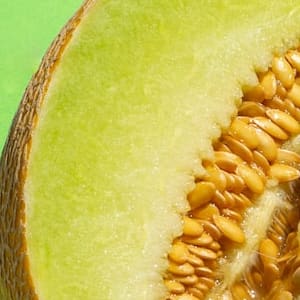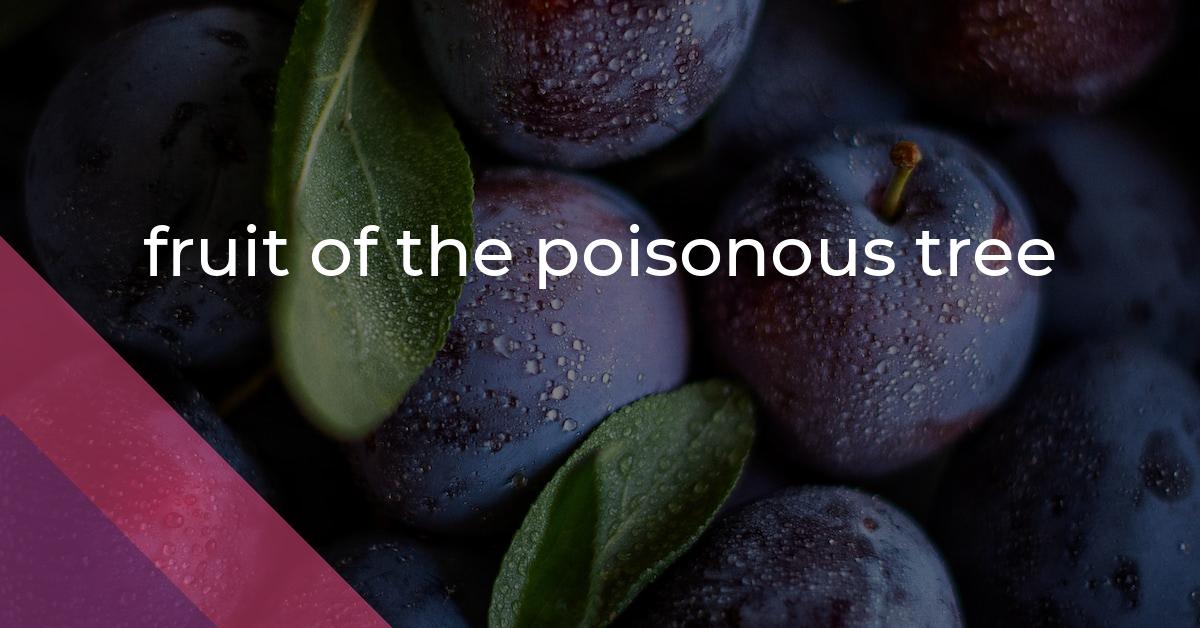fruit of the poisonous tree: Idiom Meaning and Origin
What does ‘fruit of the poisonous tree’ mean?
The idiom "fruit of the poisonous tree" refers to evidence or information that is obtained illegally, and therefore cannot be used in a legal proceeding. It is based on the principle that evidence derived from an illegal source is tainted and should be excluded to uphold the integrity of the justice system.

Idiom Explorer
The idiom "law of the jungle" refers to a situation where people act in a selfish, ruthless, and survival-oriented manner, with no regard for moral or ethical principles. It implies a chaotic and competitive environment where only the strongest and most cunning individuals succeed.
The idiom "kill the goose that lays the golden eggs" means to destroy a valuable source of income or opportunity by being greedy or short-sighted.
The idiom "in the dock" means to be on trial or facing judgment in a court of law. It is commonly used to describe someone who is accused of a crime or wrongdoing and has to defend themselves in a legal setting.
The idiom "get the goods on" means to obtain incriminating or damaging evidence against someone or to gather information that can be used against them.
The idiom "fruit up" means to enhance or make something more enjoyable, often by adding or incorporating additional elements or features. This idiomatic expression is derived from the idea of adding fruit to a dish to make it more flavorful. It can be used in various contexts, including food, experiences, or even situations that require improvement or enhancement.
The idiom "fruit of the union" refers to the positive results or benefits that come as a result of a collaboration or partnership. It symbolizes the outcome or product of a successful union or teamwork.
The idiom "fruit of one's loins" is a metaphor that refers to a person's biological offspring or children.
The idiom "fox in the henhouse" refers to a person or thing that poses a threat or danger by infiltrating a group or situation where they are not welcome or trusted.
The idiom "forbidden fruit" refers to something that is desired but prohibited or off-limits, often due to moral or societal reasons.
Orchards of Deception
The concept of fruit of the poisonous tree can be traced back to English common law principles, specifically the "exclusionary rule," which holds that evidence obtained illegally should be excluded from trial. In the United States, this principle was first established in the landmark Supreme Court case Silverthorne Lumber Co. v. United States in 1920. The ruling confirmed that evidence derived from an illegal search and seizure, or any other violation of Fourth Amendment rights, is considered "fruit of the poisonous tree" and cannot be used against the accused.
The idiom "fruit of the poisonous tree" is used to describe evidence that is obtained illegally or through a violation of someone's constitutional rights. The term "fruit" represents the outcome or results of an action, while the "poisonous tree" symbolizes the initial illegal or unconstitutional behavior. This idiom originated from a legal doctrine that aims to discourage law enforcement from engaging in unlawful practices when gathering evidence.
The exclusionary rule, which is associated with the fruit of the poisonous tree doctrine, serves as a deterrent for law enforcement to prevent them from engaging in improper or unconstitutional behavior in the first place. By declaring evidence derived from such actions as inadmissible, the legal system seeks to discourage the use of illegal means to obtain evidence and uphold the integrity of due process.
However, it is important to recognize that the exclusionary rule has faced criticism and exceptions have been made in certain circumstances. For example, the "inevitable discovery doctrine" is an exception that allows evidence to be admitted if it can be shown that it would have been found through lawful means regardless of the illegal conduct. This exception exists to ensure that evidence is not automatically excluded if it would have been discovered anyways using legal methods.
Despite the ongoing debate and legal analysis surrounding the fruit of the poisonous tree doctrine, it remains a fundamental aspect of the legal framework that seeks to protect individual rights and preserve due process. While some argue that it is necessary to safeguard civil liberties and guarantee a fair trial, others contend that it hampers law enforcement's ability to effectively combat crime.
The idiom "fruit of the poisonous tree" is related to several other idioms and phrases that convey similar concepts or share a common theme. These idioms include "forbidden fruit," "fruit of one's loins," "fruit of the union," "bad apple," and "get the goods on." Let's explore each of these idioms and their relation to the concept of the fruit of the poisonous tree.
The idiom "forbidden fruit" is often used to describe something that is tempting or alluring, but also comes with negative consequences. It can be connected to the fruit of the poisonous tree in the sense that both involve the notion of something desirable that carries inherent risks or negative outcomes.
Similarly, the idiom "fruit of one's loins" refers to a person's children, emphasizing the idea that they are a direct result of one's actions or choices. This idiom can be associated with the fruit of the poisonous tree because both involve the concept of an outcome that is directly linked to a preceding action or behavior.
Another related idiom is "fruit of the union," which refers to the children born out of a marriage or union. This idiom shares similarities with the fruit of the poisonous tree as both involve the concept of an outcome or result that is connected to a preceding action or relationship.
Additionally, the idiom "bad apple" is used to describe a person who is corrupt, dishonest, or has a negative influence on others. This idiom can be connected to the fruit of the poisonous tree in the sense that both involve the idea of a negative or harmful element that has an impact on the overall situation or environment.
Lastly, the idiom "get the goods on" is often used to mean gathering evidence or information that could be used against someone. This idiom can be related to the fruit of the poisonous tree because both involve the idea of obtaining information or evidence, although in the case of the fruit of the poisonous tree, it emphasizes the importance of obtaining it through legal means.
The idiom "fruit of the poisonous tree" is related to various other idioms and phrases, such as "forbidden fruit," "fruit of one's loins," "fruit of the union," "bad apple," and "get the goods on." These idioms share common themes or convey similar concepts related to the consequences of actions or the obtainment of evidence. While the fruit of the poisonous tree doctrine continues to be debated, it remains an integral part of the legal framework that aims to protect individual rights and ensure due process.
Example usage
Examples of how the idiom "fruit of the poisonous tree" can be used in a sentence:
- After obtaining evidence illegally, the police discovered that the suspect had a previous conviction. However, that conviction was considered the "fruit of the poisonous tree" and could not be used in court.
- The defendant's lawyer argued that the entire case was tainted because law enforcement had initially obtained a warrant based on illegally obtained information, making all subsequent evidence the "fruit of the poisonous tree."
- In a landmark decision, the Supreme Court ruled that any evidence obtained as a result of an unconstitutional search would be considered the "fruit of the poisonous tree" and therefore inadmissible in court.
More "Law" idioms



